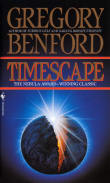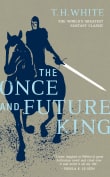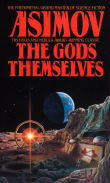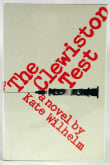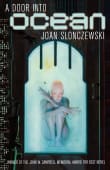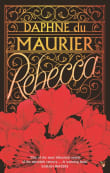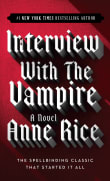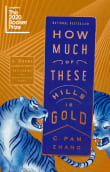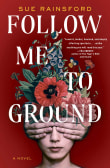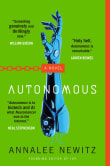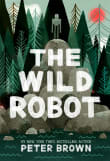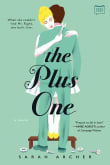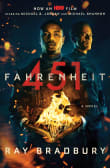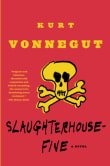Frankenstein
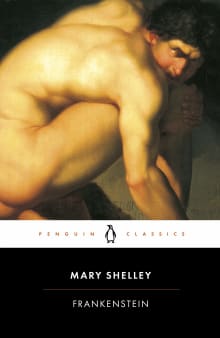
Book description
One of the BBC's '100 Novels That Shaped Our World'
'That rare story to pass from literature into myth' The New York Times
Mary Shelley's chilling Gothic tale was conceived when she was only eighteen, living with her lover Percy Shelley on Lake Geneva. The story of Victor Frankenstein who,…
Why read it?
48 authors picked Frankenstein as one of their favorite books. Why do they recommend it?

I love that this book was the result of a dare! In 1816, eighteen-year-old Mary Shelley and three friends held a contest to see who could write the scariest story. Mary’s story—like her monster—has since taken on a life of its own and today permeates all forms of storytelling.
I find it amusing that my favorite version of the monster is the one Mel Brooks gave us in Young Frankenstein. I wonder what Mary Shelley would think if she knew how much her acceptance of a dare would change storytelling forever.
I like to revisit the original story from time…
From Lori's list on teenage authors.

The first time I read Mary Shelly's Frankenstein was decades ago, and when I finished reading it, I felt like I'd just read one of the greatest loves stories ever told, and now after reading it a third time I feel exactly the same. Her heart felt writing of a misunderstood creature who is only seeking love and companionship, but is looked upon as a monster because of his physical appearance, shows us that no matter what era we live in, human nature does not change.

"Frankenstein" captivated me with its haunting exploration of ambition, isolation, and the quest for identity with gay themes between the lines. I was moved by the Creature’s yearning for acceptance, making him a tragic, sympathetic figure rather than a simple monster. The story is a powerful reminder of responsibility, empathy, and the human need for connection—even in the face of fear and rejection.
If you love Frankenstein...

We have all heard of this book. We all know something about the plot either by watching the film or hearing something about it at school. If you haven’t yet read the book, you must put it on your reading list. We can only give Mary Shelley’s work full justice by reading it from beginning to end; not until then will you be able to feel Victor’s internal struggles. In his attempt to achieve immortality, he created a monster.
I never get tired of reading chapter five where Shelley describes Victor’s utter disappointment upon watching his creation coming to life.…
From Susanna's list on thought-provoking moral dilemmas faced by people.

Frankenstein digs deep into a parent’s responsibility to their child and the beginning roots of violence. Mary Shelley asks if rejection, isolation, and suffering through neglect is sufficiently potent to make a monster. This one isn’t obscure, but I was surprised and touched by the poignant and relatable themes.
It got me thinking about my childhood and my parent’s even rougher upbringings. They tried to overcome the traumas passed on to them and stumbled quite a bit. I’ve done the same with my children and wonder at what point those increments of positive change reach a tipping point. Frankenstein asserts…
From CL's list on Science Fiction with unexpected depth.

Perhaps the most classic work of horror fiction in both literature and cinema. As an English teacher, I find that there is so much fodder for lessons prevalent in this book–nature vs nurture, the dangers of forbidden knowledge and playing God, the arrogance of science, and who the real monster is. I particularly love the difference between The Monster in the novel and the film, its articulation, desires, abilities, and even its physical appearance. Few written works have been more seminal.
From Randy's list on horror that challenges beliefs and imagination.
If you love Mary Wollstonecraft Shelley...

I’ve always loved this story of the misguided scientist and his outwardly monstrous but inwardly very sympathetic creation. My favorite scene is the one where the monster hides out in a shed of an unsuspecting family, and by watching them through a chink in the wall, he learns to speak; then, he learns to read with some of their abandoned books.
For me, his acquisition of language and literacy most poignantly characterizes his humanity in a surprising twist since Victor Frankenstein ought to be the learned one. The centrality of language to human experience has been an important theme in…
From Philippa's list on highlighting the fragility of human culture.

I don't know if creating a monster from the remains of the dead qualifies as sci-fi, but I'm adding Mary Shelley's 1818 title anyway. This was one I got to read in middle school; we had a list of books we could read, but it was mandatory to read at least 5 for the year. Other than just a handful of books I've read that were written by female authors, this is the only one that can qualify as sci-fi.
Shelley has a very eloquent yet provocative voice. I think it would be near impossible to liken her tone, pace,…
From Aaron's list on sci-fi books with a good dose of science.

I have been a fan of Gothic and melodrama since I first watched the 1931 film Frankenstein with Boris Karloff–and I was delighted to discover that the book is even better and so much more than what we’ve ever seen on screen.
Frankenstein’s monster is articulate and soulful in Mary Shelley’s atmospheric, dread-filled original novel, and his plight is all the more moving because of it. She wrote it when she was just 18 years old, still grieving over the death of her first child two years earlier. I feel her aching sorrow on every page.
From David's list on chills and thrills on a dark and stormy night.

I think the best way to understand this novel is to read it as a story about a father and a son. Victor Frankenstein creates a son whom he immediately rejects. The son seeks love and receives hate. The father fears and loathes what he has created. He refuses to take responsibility for what he has done, and the results come back to haunt him.
I think this speaks clearly to the choice we fathers must make when we start down this road, and it shows what can become of unloved sons. I’ve read this story many times, and I…
From Paul's list on understand the joys and sorrows of being a father.
If you love Frankenstein...
Want books like Frankenstein?
Our community of 12,000+ authors has personally recommended 100 books like Frankenstein.



